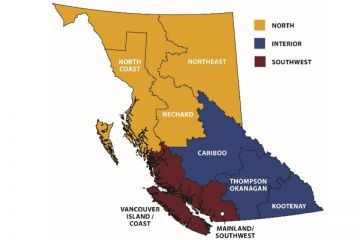Survey Shows Fewer People Bringing Vehicles To UVic Campus
The most recent University of Victoria traffic survey reveals that more and more students, faculty and staff are choosing sustainable modes of travel to get to and from campus.
“By implementing financial incentives, educational supports and infrastructure improvements through the Travel Choices Program, UVic continues to reduce the reliance on single occupant vehicles,” said Sarah Webb, Sustainability Coordinator in the Office of Campus Planning and Sustainability. “We have a vision of providing sustainable travel options for every campus community member, and regular traffic surveys help us to measure and evaluate our progress.”
In October 2008, consultants Bunt & Associates Engineering Ltd. conducted a comprehensive traffic survey for a typical weekday, with the goal of providing a snapshot of modes of travel to and from campus.
Survey highlights
• Overall, the average total weekday traffic recorded at three major entrance points (15,343 vehicles) was approximately 12% lower than in 2006.
• Single occupancy vehicle trips now account for only 37.5% of total trips, and have steadily decreased since 2000.
• Transit use has risen significantly since 1996, and in 2008 accounted for 31% of all trips. The number of pedestrian trips (6,165) to and from the university makes up 11% of total traffic, similar to 2006 but 29% higher than in 2002.
• The percentage of cycle commuters has also increased, to 7% of all trips. On an average weekday, approximately 3,964 bicycle trips are made to campus, an increase of 37% over 2006.
For additional information, visit the website at www.uvic.ca/sustainability or contact Sustainability Coordinator Sarah Webb at 250-721-6678.
-- 30 --
Media contacts
Sarah Webb (Office of Campus Planning and Sustainability) at 250-721-6288 or swebb@uvic.ca
Melanie Groves (UVic Communications) at 250-472-4357 or mgroves@uvic.ca
In this story
Keywords: survey, shows, fewer, people, bringing, vehicles, uvic, campus



